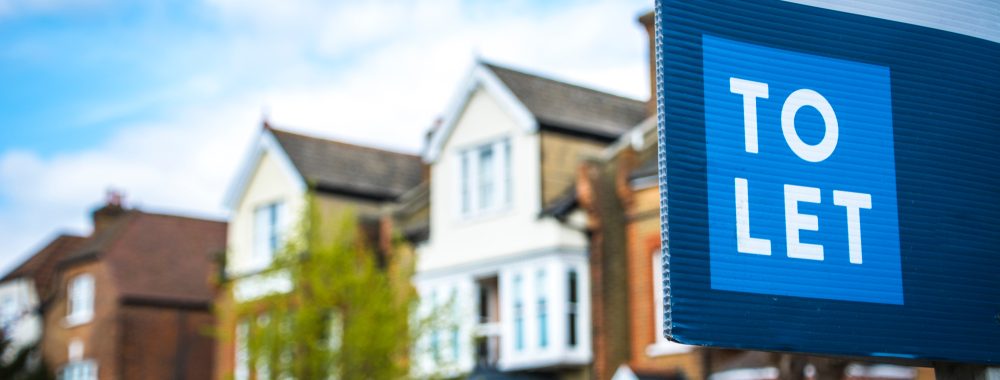Are you a landlord who has undisclosed income?
The Let Property Campaign allows landlords who owe tax through letting out residential property, in the UK or abroad, to easily bring their tax affairs up to date.
You must tell HMRC about any undisclosed income as soon as possible. You’ll then have 90 days to work out and pay what you owe.
Here are some FAQs to help:
What is the Let Property Campaign?
The Let Property Campaign is open to all residential property landlords with undisclosed income. Including:
- those with single rentals
- those with multiple properties
- specialist landlords with student or workforce rentals
- holiday lettings
- renting out a room in your home for more than the Rent a Room Scheme threshold
- those who live abroad or intend to live abroadfor more than 6 months and rent out a property in the UK, as you may still be liable to UK taxes
However, the campaign is not applicable to landlords who handle non-residential properties such as a:
- shop
- garage
- lock up
The campaign is also not available to you if you want to disclose income on behalf of a company or trust.
You can use HMRC’s Let Property questionnaire to check if you are eligible to disclose rental income under this campaign.
What happens if you disclose serious tax problems?
HMRC is unable to provide immunity from prosecution, but they will consider whether you have made a complete and voluntary disclosure of any amounts evaded or improperly reclaimed when deciding whether to carry out further investigations.
Often HMRC will take a more lenient approach if a disclosure is made voluntarily, which in some cases may lead to a reduction in penalty rates.
If you do not disclose income to HMRC and they later uncover this, you may be subject to higher penalties and face a more in-depth investigation.
Getting your tax affairs in order not only could reduce the amount you pay to HMRC, it will also give you peace of mind.
Can you make a disclosure and put your tax affairs in order outside of the Let Property Campaign?
You can still do this, but your disclosure will not be part of the Let Property Campaign.
If you are unsure whether you fall within any other campaign, you can check HMRC campaigns.
How can you take part in the Property Let Campaign?
You will need to:
- tell HMRC that you want to take part in the Let Property Campaign
- tell HMRC about all income, gains, tax and duties you have not previously told them about
- make a formal offer
- pay what you owe
- help HMRC as much as you can if they ask you for more information
How do you make a notification and disclosure to HMRC?
You must tell HMRC if you intend to make a disclosure. This needs to be done as soon as you become aware that you may owe tax on your letting income.
You can do this as soon as you have your DRN (Disclosure Reference Number) but you must disclose within 90 days of the date you receive your notification acknowledgement.
How do you prepare your disclosure?
- calculate what you owe
- include details of the years where a tax liability arises that you have not previously told HMRC about
- make your best estimate of the undisclosed income and gains and use this to make your disclosure
- include all income you have not told HMRC about before
How many years do you include in your disclosure?
- if you failed to notify HMRC about receiving letting income, you should tell HMRC by 5 October after the end of the tax year for which you start to receive that income
- if you registered for a Self Assessment tax return by the appropriate deadline, have taken care to make sure your tax affairs were correct but you have still paid too little, you’ll only have to pay HMRC what you owe for a maximum of 4 years
- if you registered for a Self Assessment tax return by the appropriate deadline or failed to register, but you have paid too little because you were careless, you’ll have to pay HMRC what you owe for a maximum of 6 years
- if you have deliberately paid too little tax you’ll have to pay HMRC what you owe for a maximum of 20 years
What other liabilities should you include in your disclosure?
- earned income not taxed before you received it, for example, profits from another business
- investment income not taxed before you received it, for example, interest
- income from non-residential property or land rental (less the expenses relating to that income)
- capital gains made on the disposal of assets, such as land, property, shares, stocks, bonds, goodwill
- VAT
What interest will be charged?
HMRC charges interest from the date tax was due until the date it is actually paid. Interest is worked out on a daily basis.
To help you work out the right amount of interest that is due, there is an online calculator available.
What are the penalties?
HMRC charges penalties on any additional tax you owe if you:
- sent an incorrect tax return
- did not disclose that you’re liable to tax
- do not have a reasonable excuse. These penalties are calculated as a percentage of the underpaid tax and are based on your behaviour.
When do you pay HMRC?
You’ll get a PRN (Payment Reference Number) when you notify HMRC that you intend to make a disclosure. This will allow you to repay any tax or fines that are due.
You must disclose and pay within 90 days of the date that HMRC acknowledges your notification, however you can request a payment plan if needed.
What payment methods are available?
HMRC accepts payment by a range of methods. It is, however, recommended that you make your payment electronically.
What happens if you cannot pay?
If you cannot pay the full amount, you’ll need to let HMRC know as soon as you can, and before you send in your disclosure.
To do this, you should contact the Let Property Campaign Helpline.
You will need:
- your DRN (Disclosure Reference Number)
- how and when you intend to pay HMRC what you owe
You may also be requested to provide:
- what your current weekly or monthly income and outgoings are
- what you own, including your home, other property and land, vehicles, investments, money in the bank
- what you owe, including mortgages, loans, credit card
When will HMRC acknowledge your disclosure?
HMRC will confirm that they’ve received your disclosure as soon as possible. They will then consider the disclosure under the terms of the Let Property Campaign.
If you have not received an acknowledgement within four weeks of sending your disclosure, phone the Let Property Campaign Helpline.
Which disclosures are unlikely to be accepted?
Cases involving disclosures where HMRC believes the money is the takings of serious organised crime are unlikely to be accepted.
Examples of this include:
- VAT fraud
- VAT bogus registration fraud
- organised tax credit fraud
- instances where there is wider criminality (such as ongoing police investigations)
What do you do if you leave something important out of your disclosure?
If you realise you have missed something out of your disclosure after you have submitted it, you should contact HMRC immediately to amend this.
How can you get things right for the future?
Once you have submitted your disclosure, you must keep your tax affairs in order in the future. You should continue to accurately declare your income and gains for those years that fall after the latest year you include in your disclosure.







